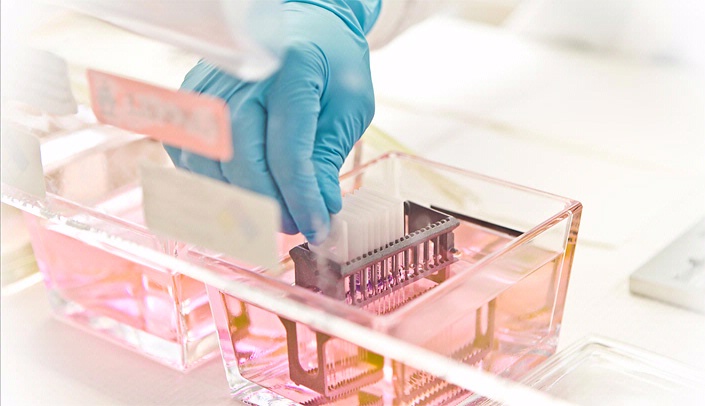The University of Nebraska Board of Regents today approved an initiative that UNMC’s School of Allied Health Professions, currently an academic unit within the College of Medicine, become an independent UNMC college.
Pending approval by the Nebraska Coordinating Commission for Postsecondary Education, the school would ascend to college status in July 2015. It would become UNMC’s sixth college, joining medicine, nursing, dentistry, pharmacy and public health. UNMC also offers graduate studies as part of the university-wide Graduate College.
Why the change?
It has been estimated that as many as 60 percent of the U.S. health care workforce are allied health professionals. Allied health professionals play key roles in the provision of high quality, accessible and affordable care, and the need for these health professionals continues to grow in Nebraska and nationwide.
“It is absolutely critical that UNMC and Nebraska be well positioned to meet these needs,” said UNMC Chancellor Jeffrey P. Gold, M.D.
The SAHP had grown considerably in the depth, breadth and geographical reach of its educational programs. Under the direction of the College of Medicine, it was already operating as a quasi-independent unit. Like other health profession colleges at UNMC, the SAHP participates in the various missions of UNMC by operating its own educational, research, outreach, budget, human resource, and planning processes.
Official ascension to college status will help the new College of Allied Health Professions further its trajectory as a national leader and that of UNMC as well.
“The growth and maturation of the school have made this proposed change possible,” said Bradley Britigan, M.D., dean of the College of Medicine. “Collegiate status will clearly make the SAHP and our entire campus stronger. We couldn’t be more thrilled for them”
“The transition will serve as a catalyst for our continued advancement,” said Kyle Meyer, Ph.D., senior associate dean of the SAHP. “It will enhance our already strong national reputation, promote faculty and student recruitment and facilitate our education and research missions.”
Drs. Britigan and Meyer said this transition is not expected to impact the budget of either the SAHP or COM. Similarly, the effect on currently enrolled students should be minimal.
“We have advanced to the point where becoming a college is the next natural step in the evolution of allied health education at UNMC,” Dr. Meyer said.
For instance, SAHP:
• Has the second-highest enrollment among UNMC colleges, behind only the College of Nursing;
• Has increased its research funding by 64 percent from 2009 to 2014;
• Has added six new endowed faculty positions since 2010;
• Plans to add full-scale health professions programs at the University of Nebraska at Kearney campus beginning in 2015.
The School of Allied Health Professions at UNMC offers educational programs in 13 professions: cardiovascular interventional technology, clinical laboratory science, clinical perfusion, computed tomography (CT) technology, cytotechnology, diagnostic medical sonography, magnetic resonance imaging (MRI) technology, medical nutrition, nuclear medicine technology, physical therapy, physician assistant, radiation therapy and radiography.
The school has produced leading research and outreach in areas such as rural medicine, hospital safety, and chronic disease management.
Through world-class research and patient care, UNMC generates breakthroughs that make life better for people throughout Nebraska and beyond. Its education programs train more health professionals than any other institution in the state. Learn more at unmc.edu.
